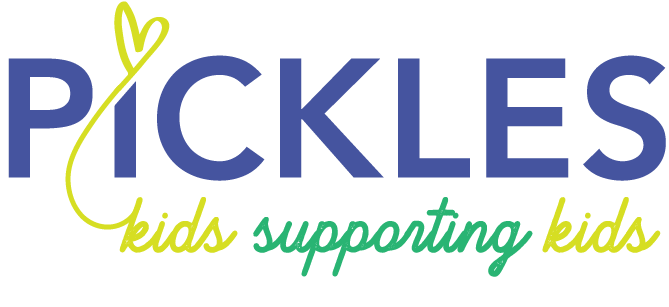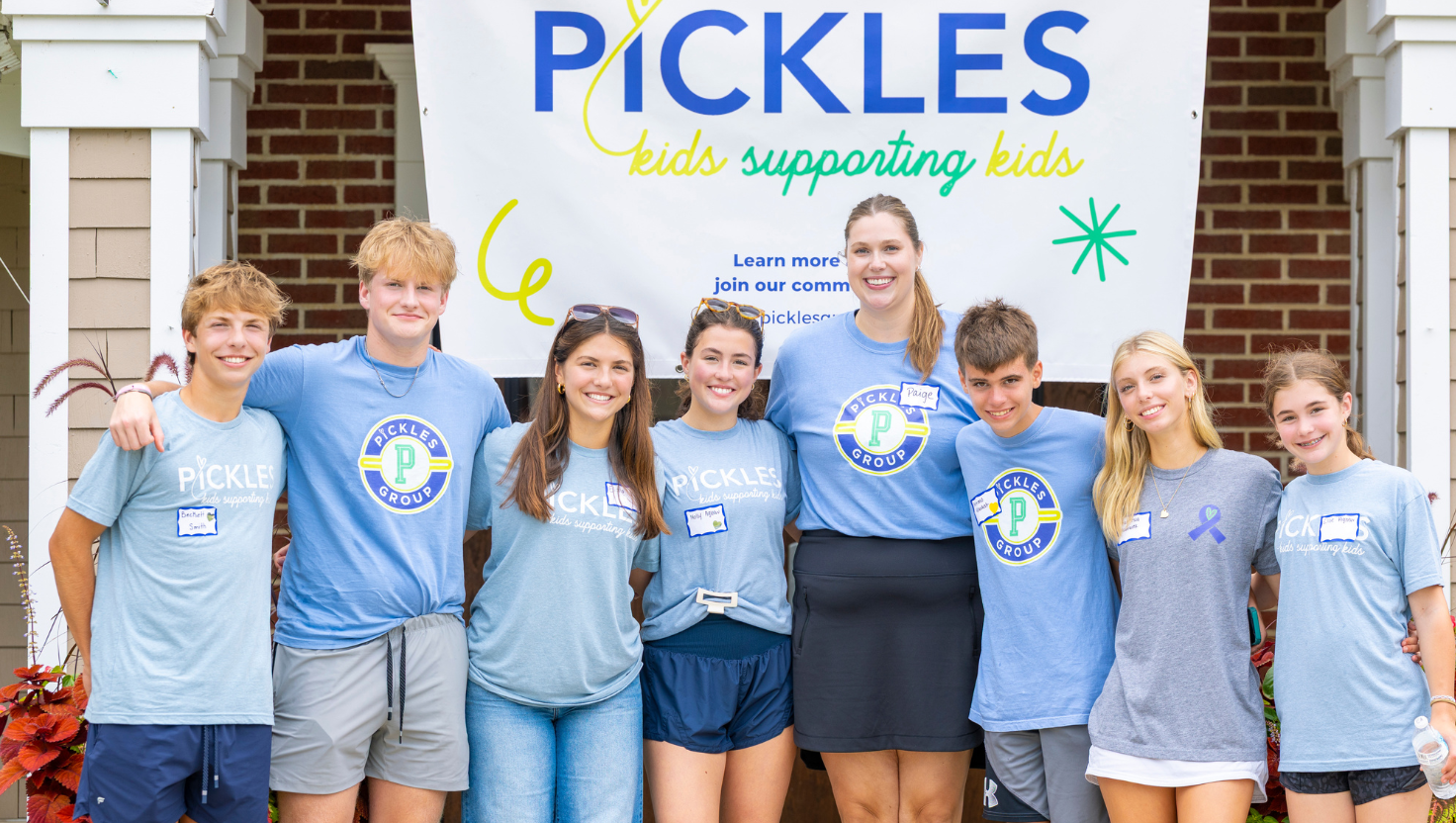5 Things Pickles Kids Taught Me During My Social Work Internship
Paige, 4th from right, with Pickles Group Founding Kids
Throughout my ten-month internship as a Master of Social Work student at the University of Chicago Crown School, I had the privilege of facilitating in-person and virtual groups alongside Pickles Group’s incredible volunteer facilitators and peer leaders. This experience has been both personally and professionally transformative, offering lessons I will carry with me into my future work and life.
Here are five of the most important lessons I’ve learned from my time at Pickles:
1. Backpacks Hold More Than Books
As Pickles Group prepares for another school year of programming, I'm reminded that kids carry a lot more than just homework – like worries, loss, and life changes that often go unseen. During one of our virtual group meetings, a child proudly listed “Fortnite and Pickles” among their favorite coping skills. Small moments, like a child asking how many months until we’d see each other again, demonstrated trust and connection. Reflecting on these interactions reminded me how important it is to create spaces where kids can share what helps lighten their load.
2. Connection Lives in the Quiet Moments
Some of the most powerful moments I’ve witnessed at Pickles Group are silent. I’ll never forget when one child gave another child an unprompted side hug after the recent loss of a parent. No words were needed, yet the gesture carried deep meaning. Connection shows up in the little things in our youth programs – like when a peer leader complimented my nails, or even just a smile over Zoom that said “I see you.”
3. Fun Can Be Healing
Not all activities at Pickles Group are about cancer, and that is intentional. Our programming aims to build a space where kids can choose what they want to talk about that day, whether it’s the hard stuff or not. During one of our meetings together, a child was initially hesitant to join a new group, but opened up after talking about video games and car racing. Despite some hesitation, the child chose to participate for the rest of our time together because they felt seen and safe. A fidget toy from the trinket box is always within a child’s reach, helping Pickles Group feel more like home.
4. Meeting Kids Where They’re At Matters
Some kids are ready to talk about their parent’s illness, while others prefer to focus on different parts of their life. After a loss in the group, I remember when one child chose not to talk about the death of their parent and focused on happy memories of swim lessons and time with cousins instead. Giving another child space to linger in the hallway before entering allowed them to join on their own terms. In our virtual groups, we show that same respect by letting kids join with their cameras off and without any pressure to speak. Respecting each child’s readiness helps Pickles remain a safe place.
5. Families are Better Together
Pickles is more than a program; it’s a network of support. I’ve seen it in parents who open up about hospital challenges over dinner, peer leaders asking me how my weekend was, and children choosing to enter the room after a conversation together. These relationships, built through both big conversations and everyday gestures, make the invisible weight just a little lighter. It’s a community that holds families up through both the challenges and the celebrations.
Overall, my time with Pickles Group strengthened my skills as a social work student, deepened my understanding of community-centered support through honest communication, and showed me the lasting impact of safe, understanding spaces for kids. Through connections with our amazing volunteer facilitators and peer leaders, kids discovered coping strategies they carried into everyday life – like using breathing techniques before a big test or leaning on a friend when things felt hard.
If you are a student or community member looking for a meaningful way to make a difference, I cannot recommend volunteering with Pickles Group enough. You may come ready to give, but you’ll leave changed for what the kids have given you.

